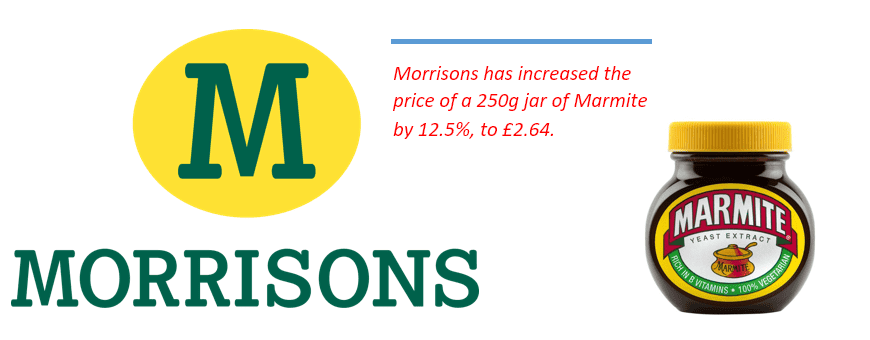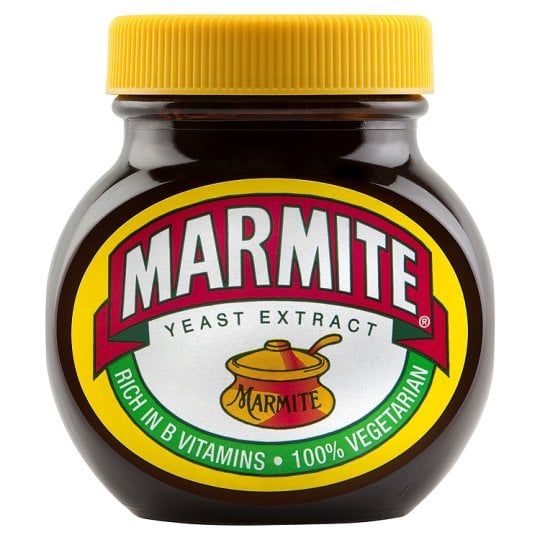Morrisons, the UK’s fourth-biggest supermarket, has raised the price of a jar of Marmite by 12.5%, to £2.64 for a 250g jar.

The price increase comes as Marmite supplier Unilever blames increased manufacturing costs on the drastic decline in the value of the pound – since the EU referendum vote on 23 June the pound has lost almost 20% of its value against the US dollar.
Two weeks ago the supplier had a public row with Tesco. Britain’s largest retailer refused to hike the prices of hundreds of Unilever products and Marmite began to disappear from Tesco’s shelves and was removed from its online store.
Since then, both Tesco and Asda have increased the prices on a number of Unilever products. However, neither have increased the price of Marmite as much as Morrisons.
“Sometimes we have to increase prices as a result of costs rising although we do our best to avoid this,” a Morrison spokeswoman said.
“More often than not we have been reducing prices and more than 3,000 products are currently cheaper in our supermarkets than they were last year.”
UK consumers can expect to see more price hikes as imports costs continue to rise
Bryan Roberts, a retail analyst at TCC Global, was quoted by The Guardian as saying that suppliers have seen a surge in the costs of items such as packaging and ingredients ranging from spices to fruit and vegetables.
“The writing is on the wall. Price increases have happened and will continue to happen across the board. Exchange rates are hammering everyone,” he said.
IAG, the owner of British Airways, warned on Friday that ticket prices could rise after company profits were hit by the weakened pound.
Similarly, tech giant Microsoft plans on hiking prices for UK businesses by as much as 22% because of the decline in the value of the pound.
Somnath Saha, chief executive of Typhoo, told the BBC that consumers can expect to see tea prices rise as the firm’s have costs increased by between £250,000 and £300,000 a month.
“In a year’s time there will be an impact of £3m on our bottom line. How can we sustain that? It is affecting us really badly. We are trying to do as much as we can to mitigate this cost but we are coming to a position now that costs need to be passed on,” Saha said.

